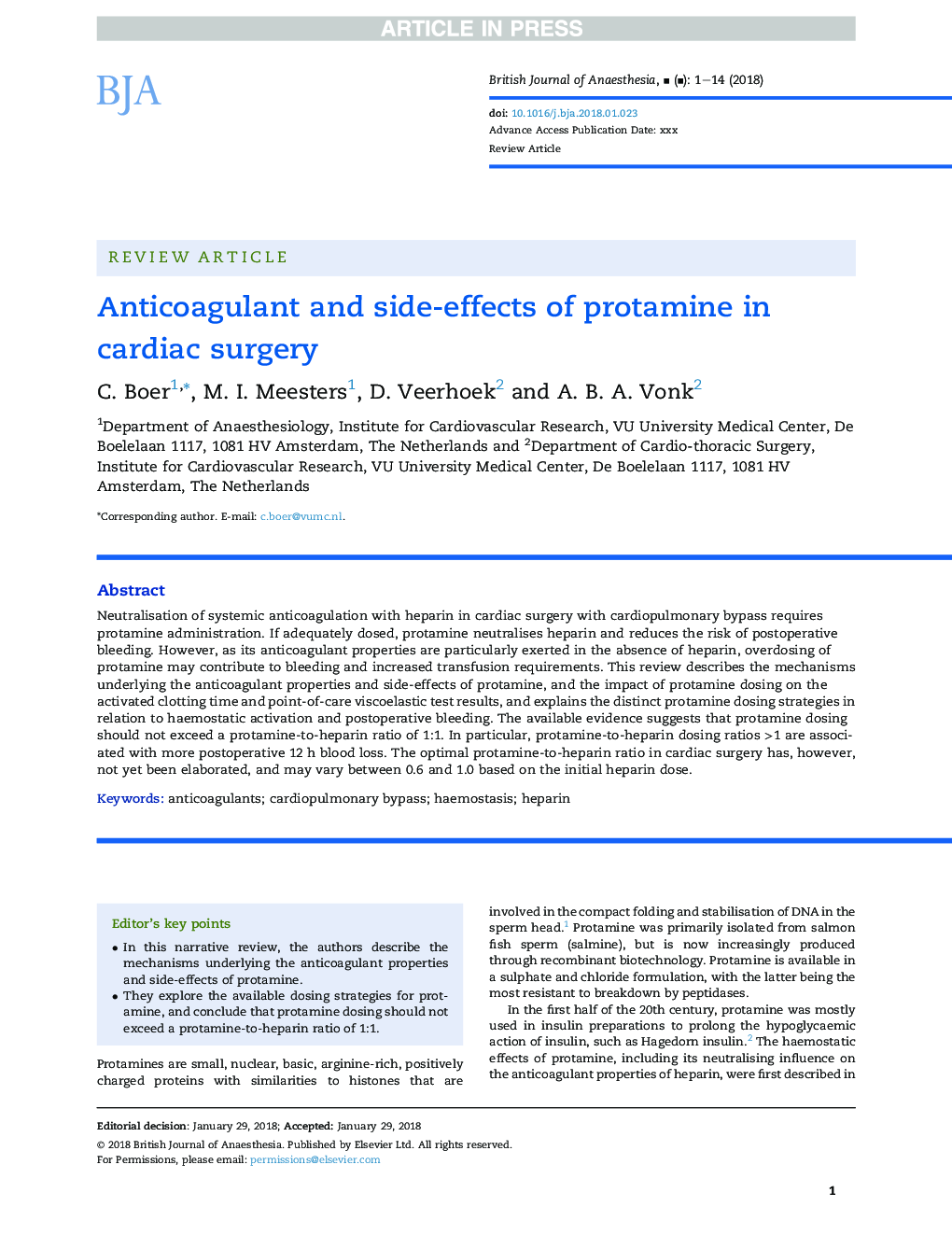| Article ID | Journal | Published Year | Pages | File Type |
|---|---|---|---|---|
| 8929723 | British Journal of Anaesthesia | 2018 | 14 Pages |
Abstract
Neutralisation of systemic anticoagulation with heparin in cardiac surgery with cardiopulmonary bypass requires protamine administration. If adequately dosed, protamine neutralises heparin and reduces the risk of postoperative bleeding. However, as its anticoagulant properties are particularly exerted in the absence of heparin, overdosing of protamine may contribute to bleeding and increased transfusion requirements. This narrative review describes the mechanisms underlying the anticoagulant properties and side-effects of protamine, and the impact of protamine dosing on the activated clotting time and point-of-care viscoelastic test results, and explains the distinct protamine dosing strategies in relation to haemostatic activation and postoperative bleeding. The available evidence suggests that protamine dosing should not exceed a protamine-to-heparin ratio of 1:1. In particular, protamine-to-heparin dosing ratios >1 are associated with more postoperative 12Â h blood loss. The optimal protamine-to-heparin ratio in cardiac surgery has, however, not yet been elaborated, and may vary between 0.6 and 1.0 based on the initial heparin dose.
Related Topics
Health Sciences
Medicine and Dentistry
Anesthesiology and Pain Medicine
Authors
C. Boer, M.I. Meesters, D. Veerhoek, A.B.A. Vonk,
